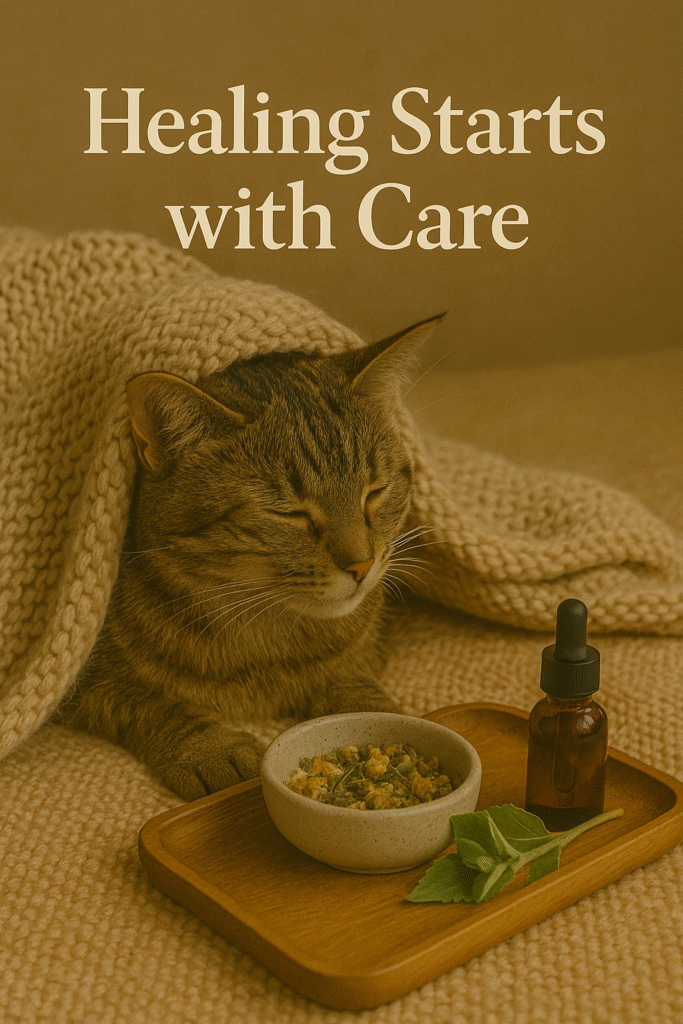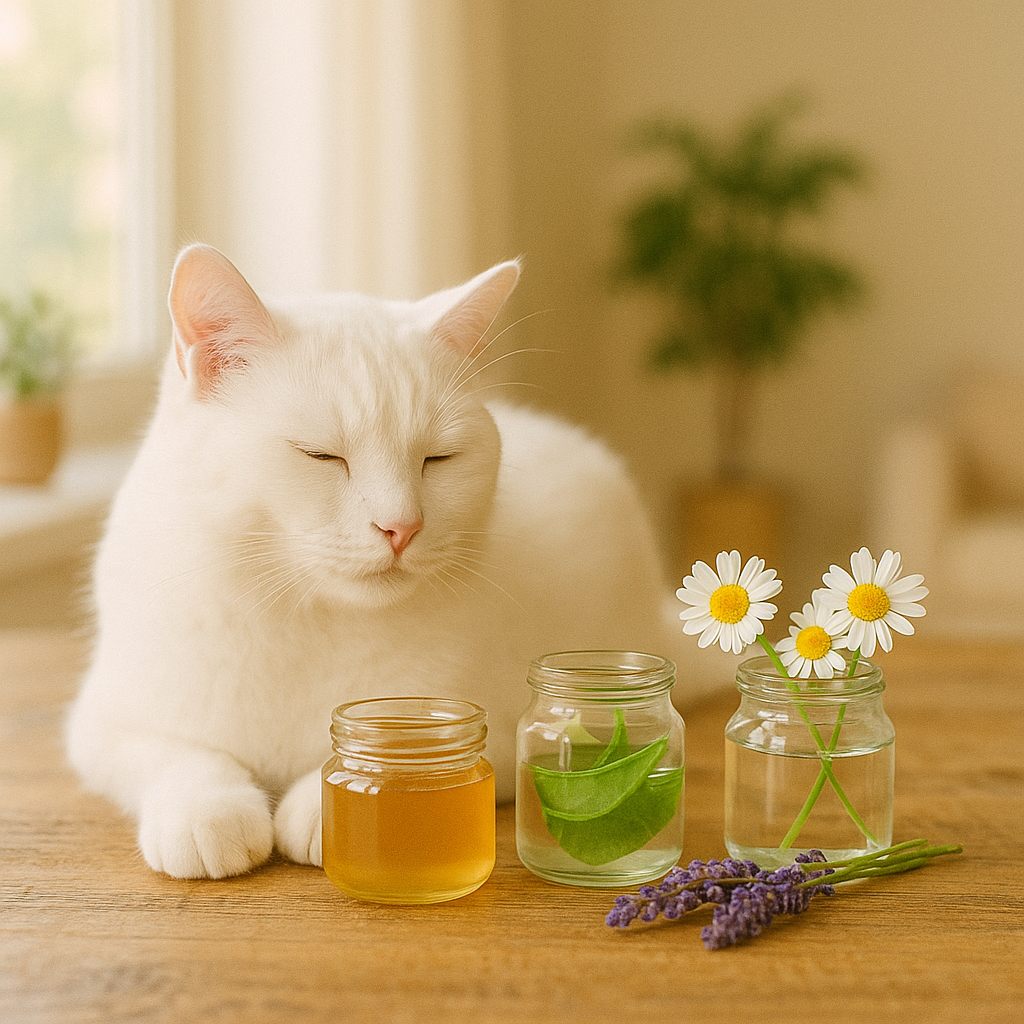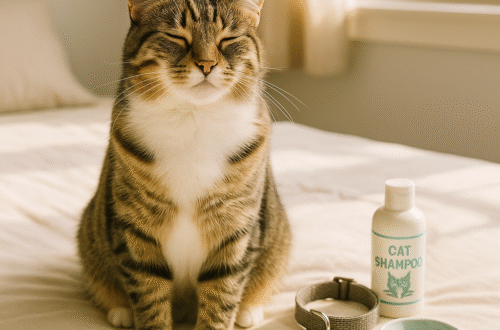Why Natural Remedies for Cats Are On the Rise
Have you ever looked into your cat’s eyes and felt helpless because they seemed unwell, but you were unsure about giving them harsh medicines? You are not alone.
More and more cat owners today are turning toward natural antibiotics as a gentle way to support their cat’s health. The idea is not to replace veterinary care, but to complement it with remedies that are safer, milder, and sometimes surprisingly effective.
From treating small cuts to supporting immunity, natural options like manuka honey or coconut oil are gaining serious attention not just among pet parents but even among holistic vets.
But are these remedies safe? Do they actually work? And most importantly, which ones should you trust?
This guide walks you through five of the most trusted natural antibiotics for cats, how to use them correctly, and when you should always consult your vet.
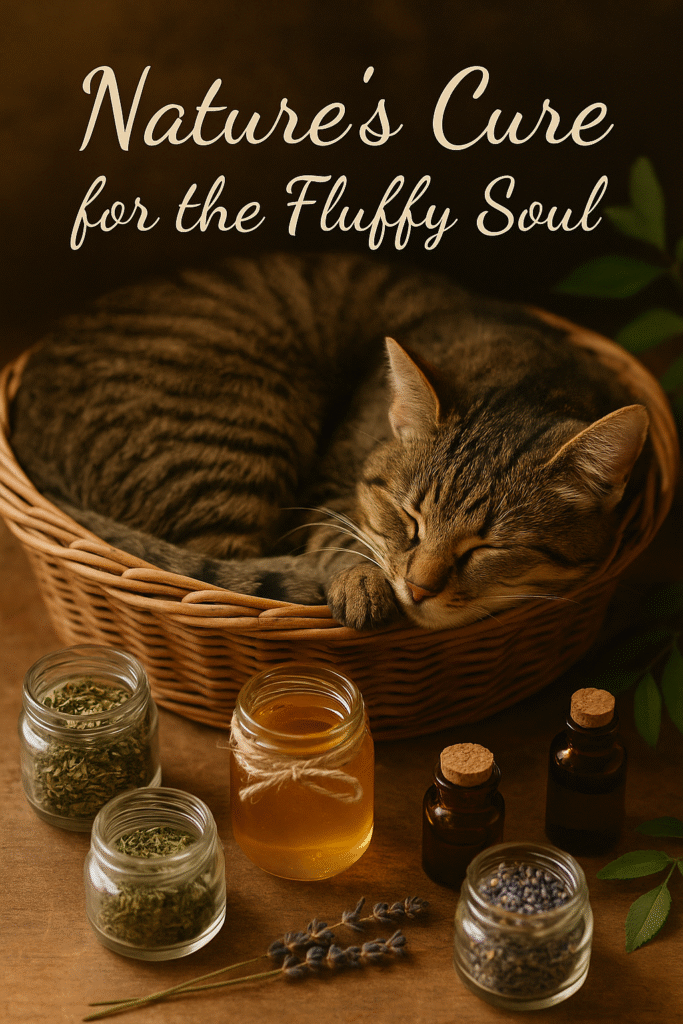
Is It Safe to Give Natural Antibiotics to Cats?
When it comes to using natural remedies for your cat, safety should always be the first concern.
Just because something is “natural” does not automatically make it safe for felines. Cats have very sensitive systems, and their bodies process substances differently than humans or even dogs.
The good news? Many natural antibiotics are safe and beneficial when used properly. But dosage, form, and timing all matter. For example, essential oils like oregano must be heavily diluted before use, while manuka honey can be applied directly but only in small amounts.
It’s also important to remember that natural remedies are supportive, not replacements for proper veterinary care. If your cat has a serious infection, always get professional advice first. Use these options for minor issues or as preventive immune boosters under the guidance of a vet.
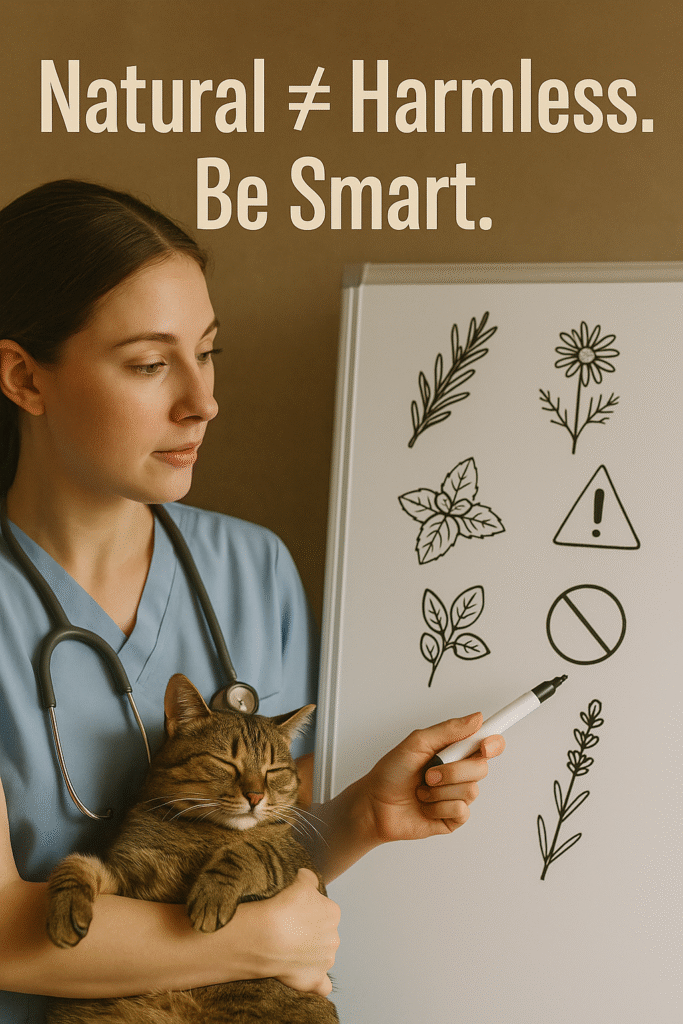
5 Natural Antibiotics for Cats (With Benefits & Dosage Tips)
These natural remedies have been used by holistic pet owners and some vets to gently fight infections, soothe inflammation, and support overall feline wellness. Here’s what they are, how they help, and how to use them safely.
1. Manuka Honey
Benefit: Powerful antibacterial properties, great for wound healing and sore throats.
How to Use: Apply a thin layer directly on minor cuts or mix 1/4 teaspoon with food for oral health support.
Note: Use only medical-grade manuka honey, not regular kitchen honey.
2. Oil of Oregano
Benefit: Fights bacteria, fungi, and even parasites.
How to Use: Mix 1 drop of oregano oil in 1 teaspoon of coconut oil. Apply externally or rub a tiny amount on paws for slow ingestion.
Warning: Never use undiluted. Can be toxic if overused.
3. Colloidal Silver
Benefit: Known for its antimicrobial effect, especially in respiratory infections.
How to Use: A few drops in drinking water (up to 10 ppm) or in a spray bottle for cleaning wounds.
Vet Tip: Only use short-term, and always under supervision long-term use is debated.
4. Coconut Oil
Benefit: Natural antibacterial and antifungal; promotes healthy digestion and coat.
How to Use: Mix 1/4 teaspoon into food 2–3 times a week. Can also be rubbed into dry skin or minor rashes.
Bonus: Cats usually love the taste!
5. Echinacea
Benefit: Immune system booster, great during cold/flu season or after a minor illness.
How to Use: Tinctures or teas made for pets. Use only 5–10 days at a time to avoid resistance.
Tip: Combine with good hydration and rest for best results.
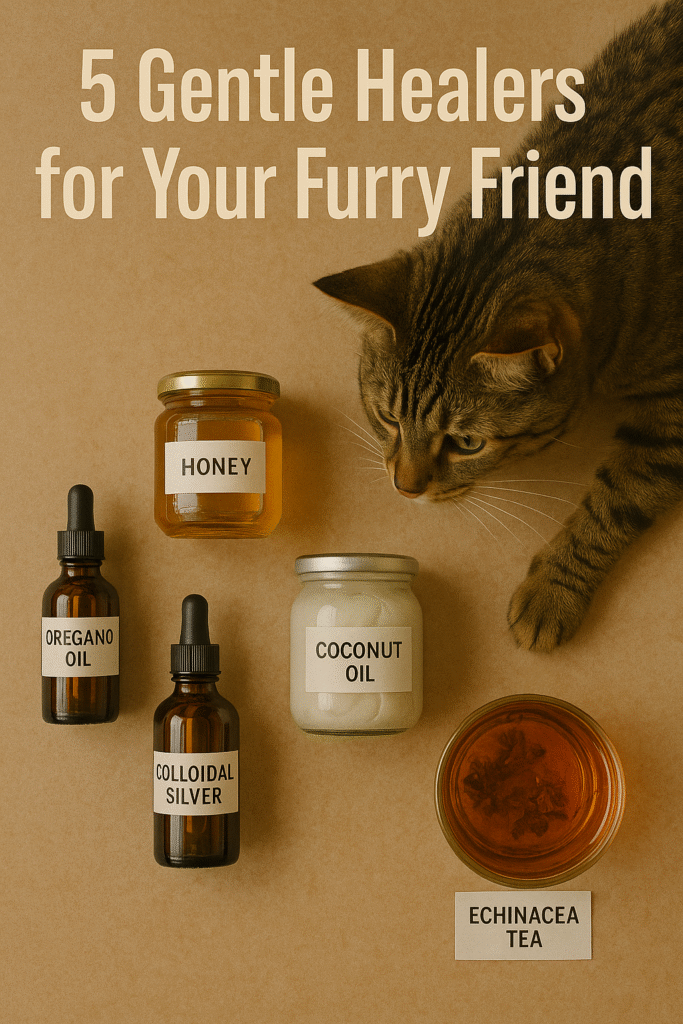
When to Use These Remedies (And When to See a Vet)
Natural antibiotics can be incredibly helpful but only when used at the right time and for the right reasons. Knowing when to reach for a home remedy and when to call your vet could save your cat’s life.
When Natural Remedies Might Help:
- Small cuts or scrapes
- Mild skin irritation
- Occasional sneezing or coughing
- Dry, flaky skin
- Boosting immunity during seasonal changes
In these cases, using manuka honey on a cut or coconut oil for dry skin may be enough to soothe the problem. You can also use echinacea to support your cat’s immune system during colder months or times of stress.
When You Must See a Vet:
- Bleeding that won’t stop
- Swelling, pus, or strong odor from a wound
- Labored breathing or constant sneezing
- Vomiting or diarrhea lasting more than a day
- Lethargy, loss of appetite, or hiding behavior
If your cat is showing any of these symptoms, do not rely on natural treatments alone. These signs can indicate serious health problems that need professional care and fast.
Remember: Natural antibiotics are helpers, not heroes. They work best alongside proper veterinary advice, not instead of it.

Bonus Tips to Naturally Boost Your Cat’s Immune System
Keeping your cat healthy is not just about treating problems it’s about preventing them in the first place. These natural habits can help strengthen your cat’s immune system and reduce the chances of infections, allergies, or digestive issues.
1. Choose High-Quality Food
Go for real meat-based cat food without fillers like corn, soy, or artificial additives. A clean, balanced diet is the foundation of a strong immune system.
2. Encourage More Water Intake
Cats often do not drink enough water. Use a pet fountain or flavor water with tuna juice (unsalted) to make it more appealing. Hydration helps flush toxins and supports organ health.
3. Minimize Stress
Changes in environment, loud noises, or even boredom can weaken your cat’s immunity. Create a calm space, provide vertical spaces like cat trees, and keep a predictable routine.
4. Keep Things Clean
A tidy litter box, clean bedding, and sanitized food bowls reduce exposure to harmful bacteria and fungi especially important when using natural antibiotics
5. Include Natural Supplements (With Vet Approval)
Things like probiotics, fish oil, or turmeric (in tiny amounts) can support digestion, reduce inflammation, and boost overall health. Always confirm with your vet first.
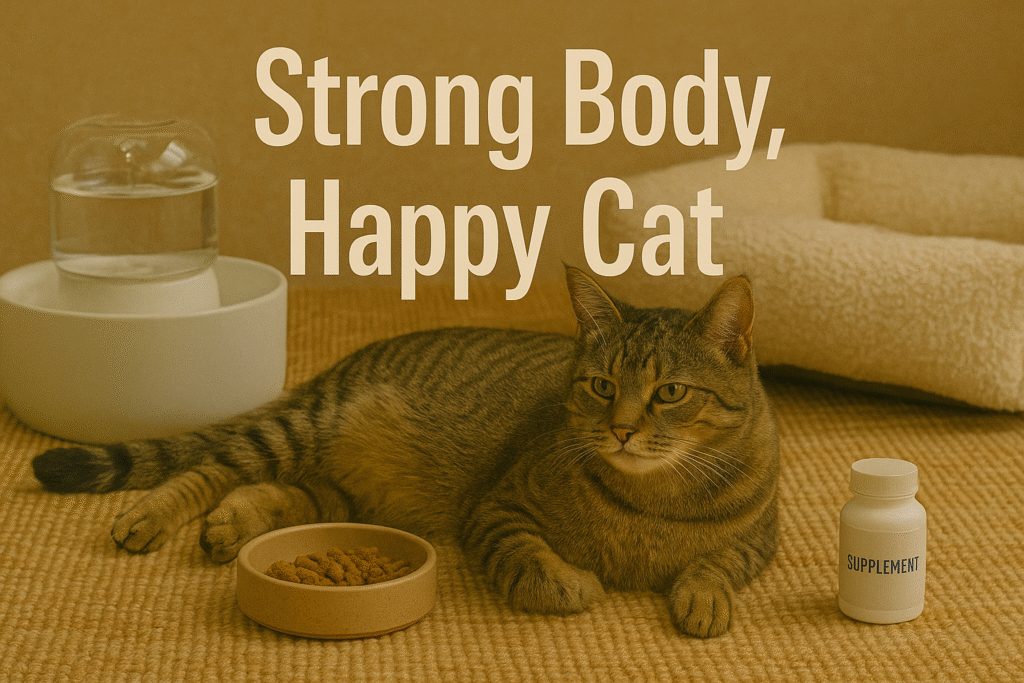
Treating Your Cat Gently & Smartly
Our cats trust us to care for them, and part of that responsibility means knowing when to go natural and when to reach out for professional help.
The natural antibiotics we explored from manuka honey to echinacea can offer real, gentle support for your cat’s health. But they work best when combined with a healthy lifestyle, regular checkups, and lots of love.
Use these remedies as tools in your wellness toolkit not replacements for medical care. Pay attention to your cat’s signals, and never hesitate to consult a vet if you are unsure.
Because at the end of the day, nothing is more healing than a cat who feels safe, supported, and seen.
